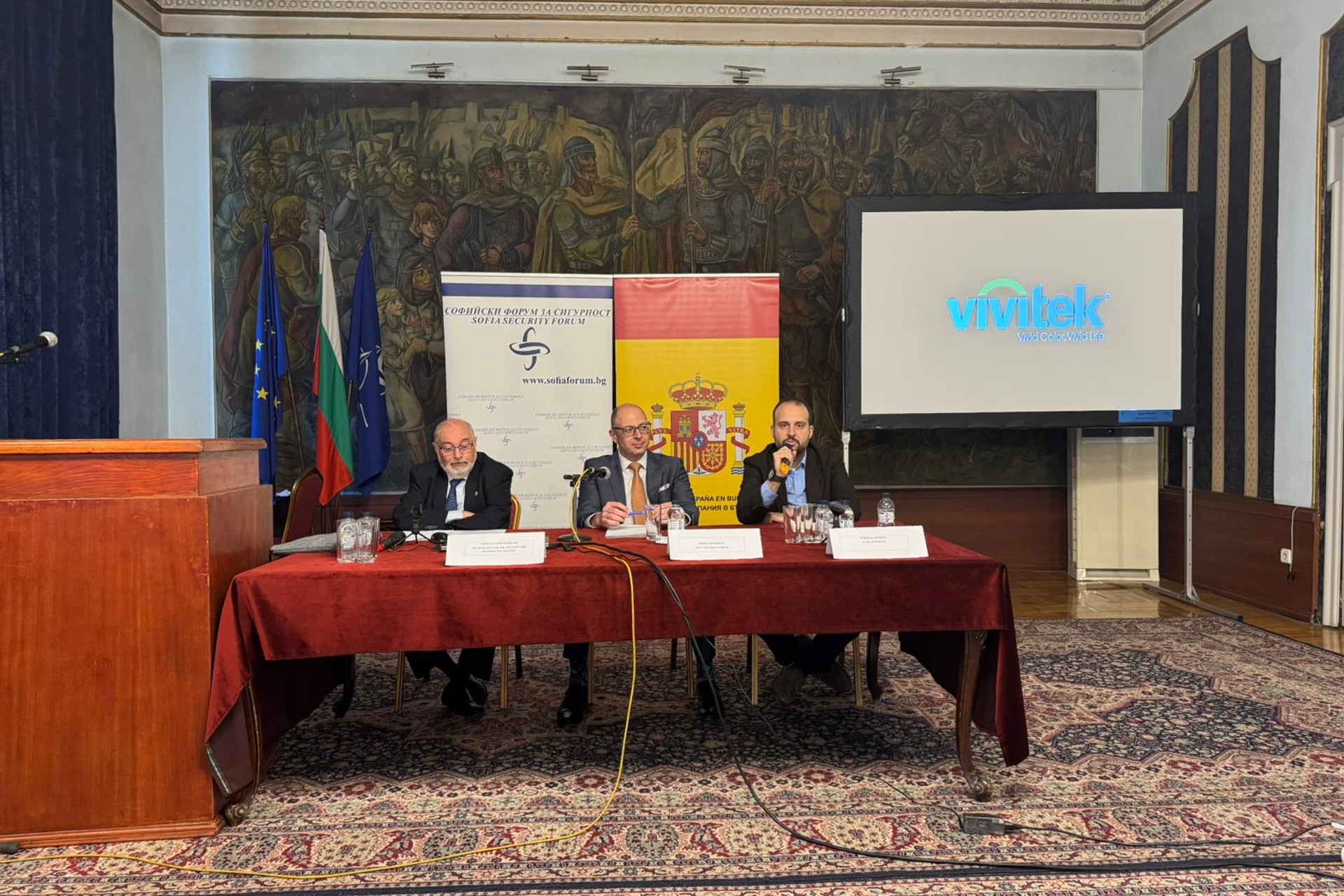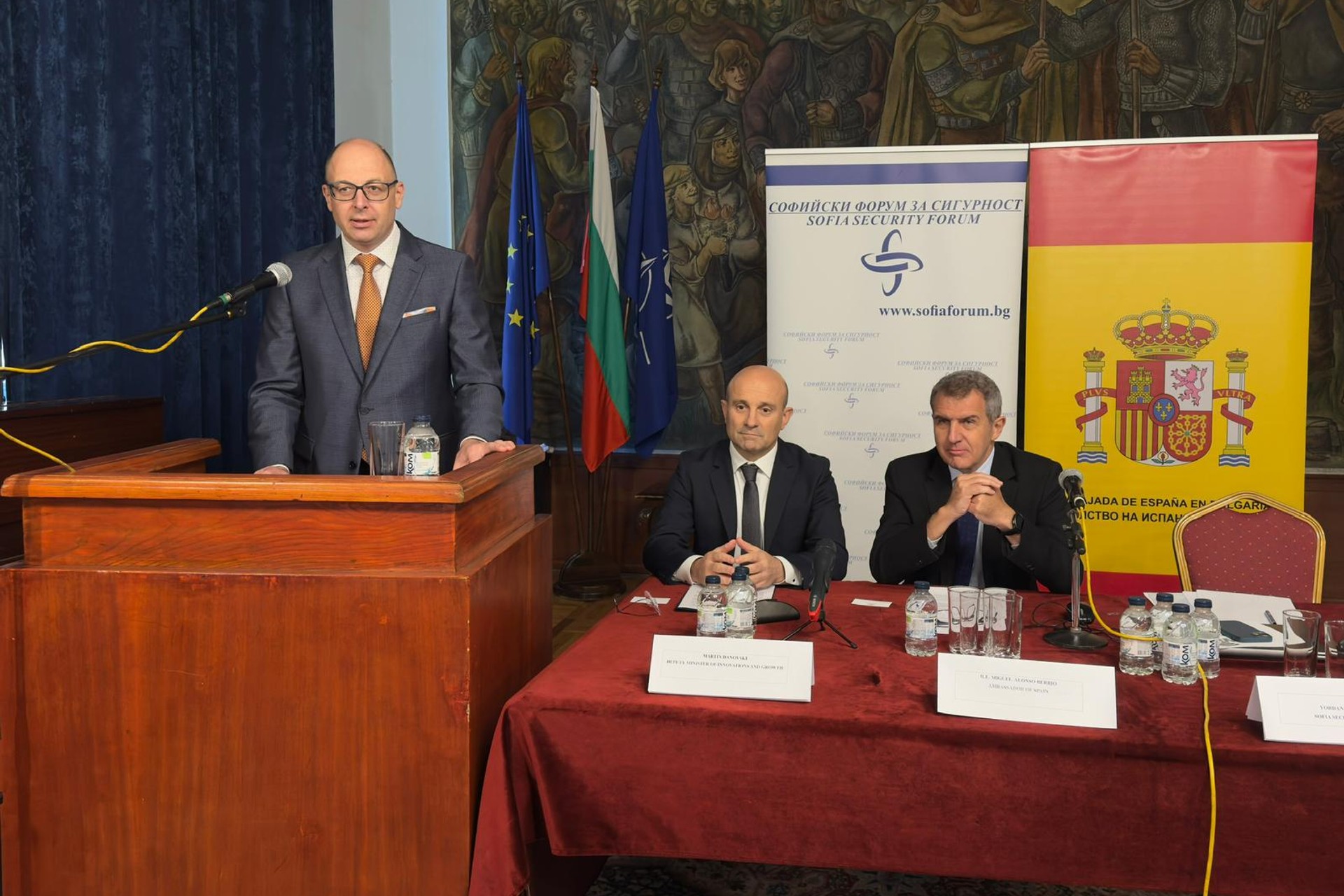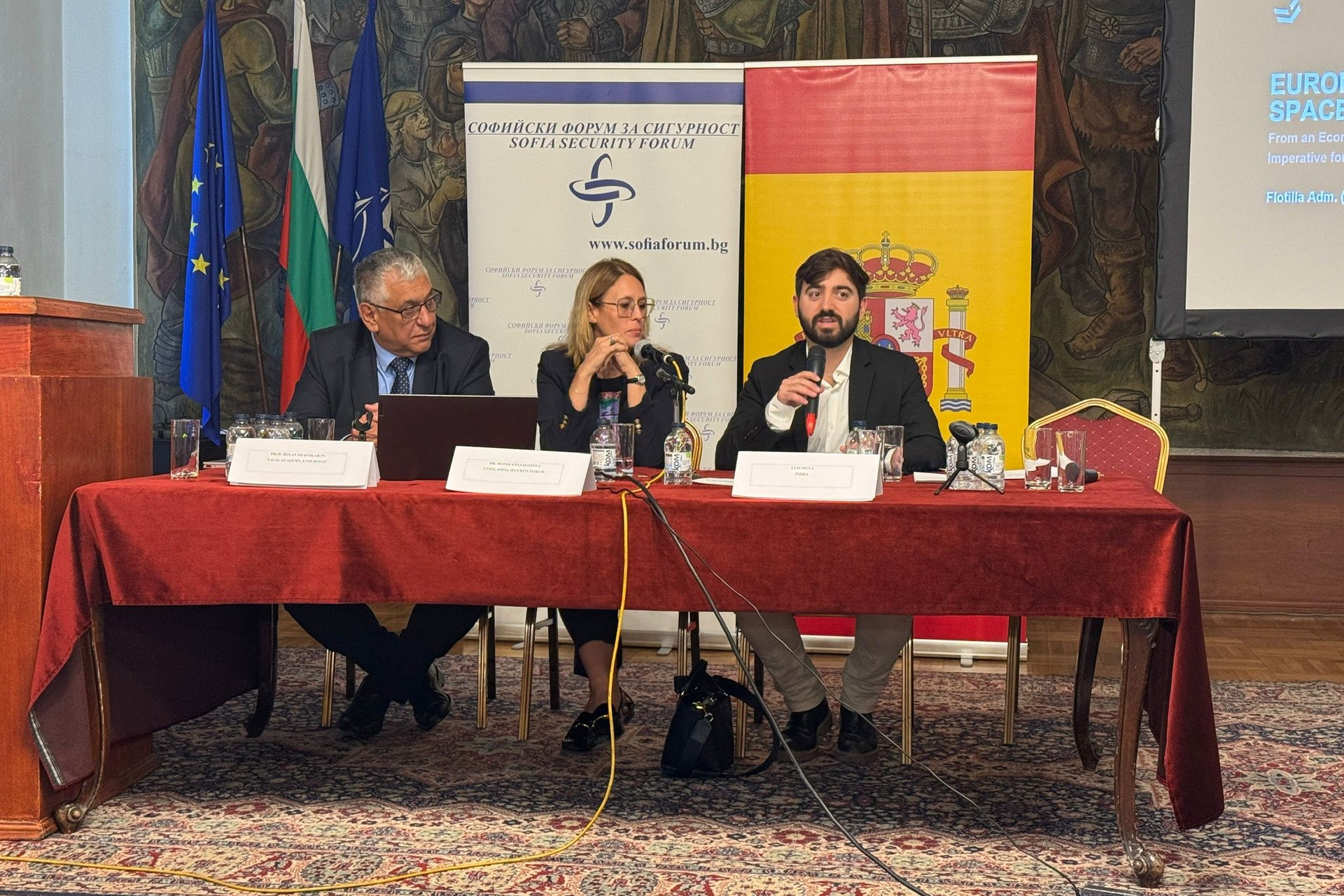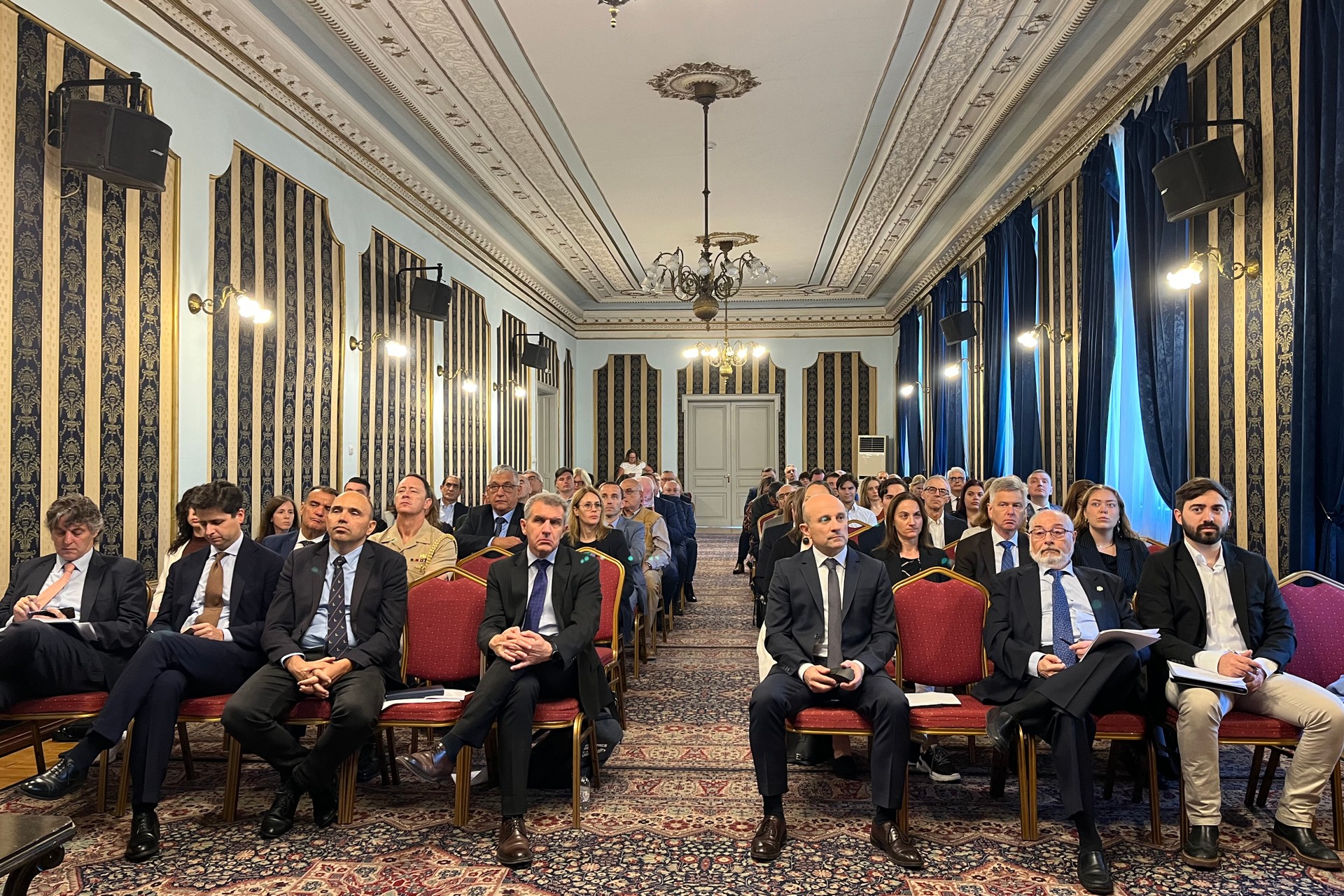Home > Events > EU TECHNOLOGICAL AUTONOMY
EU TECHNOLOGICAL AUTONOMY. STRATEGIES, FUNDING, AND IMPLEMENTATION
23.09.2025
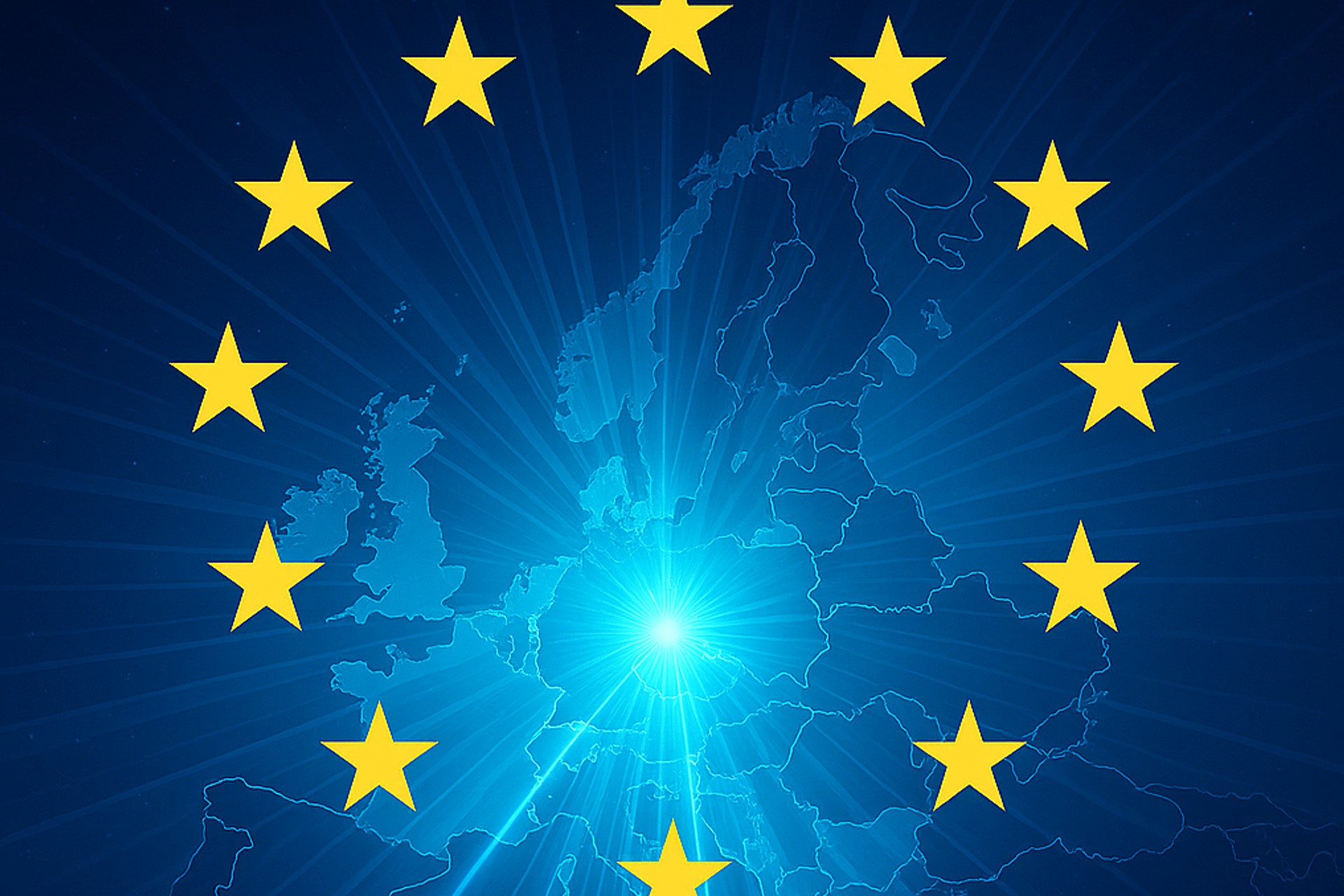
The international conference “Technological Autonomy of the EU: Strategies, Funding, and Implementation,” organized by the Sofia Security Forum and the Embassy of the Kingdom of Spain in Sofia, was held on September 24 at the Central Military Club. The forum brought together representatives of Bulgarian institutions, business, academia, and the diplomatic community. The event aimed to highlight the strategic importance of the EU’s technological autonomy and to foster cross-sector debate on the key challenges and opportunities in this field.
The conference was opened by Yordan Bozhilov, President of the Sofia Security Forum; Miguel Alonso Berrio, Ambassador of Spain to Bulgaria; and Martin Danovski, Deputy Minister of Innovation and Growth. The keynote address by Prof. Velizar Shalamanov provided an in-depth perspective on maintaining NATO’s technological edge within the broader context of the EU’s pursuit of strategic autonomy.
The first panel, “Strategic Visions for the EU’s Technological Development,” featured Luis Moya (INDRA, EU Defence Division) and Prof. Boyan Mednikarov, representing the Naval Academy and EnduroSat. Moderated by Dr. Monika Panayotova, university lecturer and Vice President of the Sofia Security Forum, the discussion explored innovation ecosystems, regulatory alignment, and public–private partnerships. The second panel, “From Policy to Practice: Turning Strategies into Reality,” focused on defense technological autonomy and security innovation, with contributions from Gonzalo León Serrano (Foundation for Defence and Security Technologies) and Dr. Borislav Bankov (NATO Testing Centre, GATE Institute). The panel was moderated by Yordan Bozhilov. Discussions in both sessions addressed practical issues, technical challenges, and emerging threats, while also presenting innovative and promising solutions—including the “democratization” of space through small satellites and the need to improve not only technologies but also supporting infrastructure.
Speakers repeatedly emphasized that NATO’s existing mechanisms and instruments in the fields of security and defense should be adapted and leveraged by the European Union. Building entirely new, independent European structures would require considerable time—a resource the EU cannot afford in today’s dynamic and unstable international environment. This underscored the urgency of closer coordination between European and Euro-Atlantic institutions, alongside targeted investments in strategic technologies and infrastructure.
The conference drew strong interest and active engagement from the audience. Participants posed insightful, analytically rich questions that enriched the exchange of ideas and turned the event into a significant contribution to the European debate on technological autonomy and strategic resilience.
